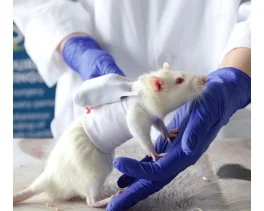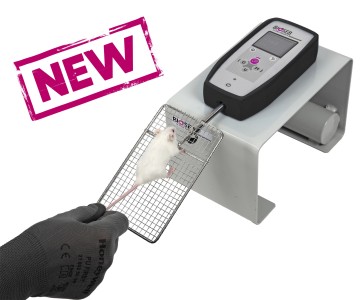Authors
R Gonzalo-Gobernado, MI Ayuso, L Sansone et al
Lab
Neurovascular Research Group, Institute of Biomedicine of Seville, IBiS, Hospital Universitario Virgen del Roc’o, Av. Manuel Siurot s/n, 41013 Seville; Spain
Journal
Nutrients
Abstract
Stroke is one of the leading causes of death worldwide and while there is increasing evidence that a Mediterranean diet might decrease the risk of a stroke, the effects of dietary fat composition on stroke outcomes have not been fully explored. We hypothesize that the brain damage provoked by a stroke would be different depending on the source of dietary fat. To test this, male C57BL/6J mice were fed for 4 weeks with a standard low-fat diet (LFD), a high-fat diet (HFD) rich in saturated fatty acids (HFD-SFA), an HFD containing monounsaturated fatty acids (MUFAs) from olive oil (HFD-OO), or an HFD containing MUFAs from olive oil plus polyunsaturated fatty acids (PUFAs) docosahexaenoic acid/eicosapentaenoic acid (DHA/EPA) (HFD-OO-!3). These mice were then subjected to transient middle cerebral artery occlusion (tMCAo). Behavioural tests and histological analyses were performed 24 and/or 48 h after tMCAo in order to elucidate the impact of these diets with different fatty acid profiles on the ischemic lesion and on neurological functions. Mice fed with HFD-OO-!3 displayed better histological outcomes after cerebral ischemia than mice that received an HFD-SFA or LFD. Furthermore, PUFA- and MUFA-enriched diets improved the motor function and neurological performance of ischemic mice relative to those fed with an LFD or HFD-SFA. These findings support the use of DHA/EPA-omega-3-fatty acid supplementation and olive oil as dietary source of MUFAs in order to reduce the damage and protect the brain when a stroke occurs.
BIOSEB Instruments Used
Grip strength test (BIO-GS3)
Source :

 Douleur - Allodynie/Hyperalgésie Thermique
Douleur - Allodynie/Hyperalgésie Thermique Douleur - Spontanée - Déficit de Posture
Douleur - Spontanée - Déficit de Posture Douleur - Allodynie/Hyperalgésie Mécanique
Douleur - Allodynie/Hyperalgésie Mécanique Apprentissage/Mémoire - Attention - Addiction
Apprentissage/Mémoire - Attention - Addiction Physiologie & Recherche Respiratoire
Physiologie & Recherche Respiratoire




































 Douleur
Douleur Système Nerveux Central (SNC)
Système Nerveux Central (SNC)  Neurodégénérescence
Neurodégénérescence Système sensoriel
Système sensoriel Système moteur
Système moteur Troubles de l'humeur
Troubles de l'humeur Autres pathologies
Autres pathologies Système musculaire
Système musculaire Articulations
Articulations Métabolisme
Métabolisme Thématiques transversales
Thématiques transversales Congrès & Meetings
Congrès & Meetings 